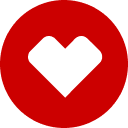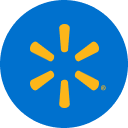
Pediatric Compressor/nebulizer Coupons & Savings Card – Discount Prices from $59.94
Brand for: Pediatric compressor nebulizer
My prescription
Edit
1, Pediatric Compressor Nebulizer (1 Miscellaneous)
Select pharmacy

CVS
$59.94
COUPON PRICE
Walmart
$156.51
COUPON PRICE
Walgreens
$167.50
COUPON PRICE
Albertsons
$176.51
COUPON PRICEPediatric Compressor/nebulizer savings card
Show this card to your pharmacist
CVS
$59.94
BIN
ID
PCN
GRP
019876
LH5DBFF986
CHIPPO
LHX
Powered by
Price history for Pediatric Compressor/nebulizer (brand) & Pediatric Compressor Nebulizer (generic)
1 Miscellaneous, 1
Average retail price for Pediatric Compressor/nebulizer
Average retail price for Pediatric Compressor Nebulizer
Average SaveHealth price for Pediatric Compressor Nebulizer
Our price history data is based on aggregated prescription data collected from participating pharmacies in America. Our prescription data updates daily to reflect the latest price changes. If you notice a missing data point, it means there wasn't sufficient data available to generate a monetary value for that date.
Over the last 12 months, the average discount price of Pediatric Compressor/nebulizer is $161.64 using the SaveHealth savings card. That's an average savings of -134.29% on Pediatric Compressor/nebulizer with our discount card.
*Retail prices are based on pharmacy claims data, and may not be accurate when we don't have enough claims.
Pediatric Compressor/nebulizer (Pediatric Compressor Nebulizer) dosage forms
Dosage Quantity Price from Per unit 1 1 Miscellaneous $59.94 $59.94 1 2 Miscellaneous $101.88 $50.94 1 3 Miscellaneous $143.82 $47.94
| Dosage | Quantity | Price from | Per unit |
|---|---|---|---|
| 1 | 1 Miscellaneous | $59.94 | $59.94 |
| 1 | 2 Miscellaneous | $101.88 | $50.94 |
| 1 | 3 Miscellaneous | $143.82 | $47.94 |
Pediatric Compressor/nebulizer Warnings
When using a pediatric compressor nebulizer, it's essential to be aware of potential risks to ensure the safety and well-being of your child. Here are key considerations:
Electrical Safety: To prevent electrical hazards, always keep the nebulizer unit away from water. Never use the device while bathing, and avoid placing it where it could fall into water. If the nebulizer does come into contact with water, unplug it immediately and do not use it until it has been thoroughly checked and deemed safe. Regularly inspect the device and its power cord for any signs of damage. If you notice any issues, discontinue use and consult a professional for repair.
Infection Control: Proper cleaning and maintenance of the nebulizer are crucial to prevent bacterial contamination, which can lead to respiratory infections. After each use, disassemble the nebulizer and wash all parts, except the tubing, with warm, soapy water. Rinse thoroughly and allow them to air dry on a clean towel. At least once a week, disinfect the components by soaking them in a solution of one part white vinegar to three parts distilled water for 30 minutes, then rinse and air dry. Do not attempt to clean the tubing; instead, replace it if it becomes dirty or damaged.
Proper Usage: Ensure that the nebulizer is used only as prescribed by your child's healthcare provider. Using the device more frequently or for longer durations than recommended can pose health risks. Additionally, always use the medications specifically prescribed for nebulization, and do not mix medications without consulting a healthcare professional.
Supervision and Environment: Never leave the nebulizer unattended while in use, especially around children. Place the device on a flat, stable surface during operation to prevent it from tipping over. Ensure that the area is well-ventilated and free from flammable substances, as nebulizers should not be used in or near explosive atmospheres.
Device Maintenance: Regularly check the nebulizer's air filter and replace it as needed, following the manufacturer's guidelines. A clogged or dirty filter can impair the device's function and potentially introduce contaminants into the aerosolized medication.
By adhering to these safety measures, you can help mitigate risks associated with pediatric compressor nebulizer use and ensure effective and safe treatment for your child.
Pediatric Compressor/nebulizer Side Effects
When using a pediatric compressor nebulizer to administer medications for respiratory conditions, it's important to be aware of potential side effects that may occur. These side effects are generally associated with the medications delivered through the nebulizer rather than the device itself. Common Side Effects:
- Throat or Mouth Irritation: Some children may experience mild irritation or dryness in the throat or mouth following nebulizer treatments.
- Coughing or Wheezing: Inhalation of certain medications can occasionally trigger coughing or wheezing during or after the treatment.
- Nausea or Upset Stomach: A few children might feel nauseous or have an upset stomach, particularly if they find the taste or smell of the medication unpleasant.
- Increased Heart Rate: Medications like bronchodilators, commonly used in nebulizer treatments, can lead to a temporary increase in heart rate.
- Tremors or Shaking: Some children may experience mild tremors or shaking in the hands after using bronchodilator medications.
- Nervousness or Restlessness: Feelings of nervousness or restlessness can occur, especially with medications that stimulate the respiratory system. Rare Side Effects:
- Allergic Reactions: Although uncommon, allergic reactions to specific medications can happen. Symptoms may include skin rashes, itching, swelling, or difficulty breathing. Immediate medical attention is necessary if an allergic reaction is suspected.
- Paradoxical Bronchospasm: In rare instances, medications intended to open the airways can cause them to constrict instead, leading to increased breathing difficulties. If this occurs, seek medical help immediately. Preventive Measures:
- Proper Cleaning: Regularly clean and disinfect the nebulizer components to prevent bacterial contamination, which can lead to infections.
- Monitor for Side Effects: Observe your child during and after treatments for any adverse reactions.
- Consult Healthcare Providers: Always use medications as prescribed and consult your child's healthcare provider if you have concerns about side effects or the treatment plan. By being informed about these potential side effects and taking appropriate precautions, you can help ensure that nebulizer treatments are both safe and effective for your child.
Pediatric Compressor/nebulizer Interactions
When using a pediatric compressor nebulizer, it's crucial to be aware of potential interactions between nebulized medications and other drugs your child may be taking. Certain combinations can lead to adverse effects or reduce the effectiveness of treatments. Here are some key considerations:
Mixing Medications in the Nebulizer
Combining multiple medications in a nebulizer is generally discouraged unless specifically directed by a healthcare provider. The compatibility, efficacy, and safety of mixing drugs have not been extensively studied, and improper combinations can lead to reduced effectiveness or increased side effects. Always consult your child's doctor before mixing any medications in the nebulizer.
Interactions with Other Medications
Some nebulized medications can interact with other drugs your child may be taking:
Beta-Agonists (e.g., Albuterol): These can interact with beta-blockers, potentially reducing the effectiveness of both medications and increasing the risk of bronchospasm. They may also enhance the effects of other sympathomimetic agents, leading to increased heart rate or blood pressure. Additionally, combining beta-agonists with diuretics can increase the risk of low potassium levels (hypokalemia), which can affect heart function.
Anticholinergics (e.g., Ipratropium): When used with other anticholinergic medications, there can be additive effects, potentially leading to increased side effects such as dry mouth, blurred vision, or urinary retention.
Recommendations for Safe Use
Consult Healthcare Providers: Before starting any new medication or combining treatments, discuss with your child's doctor to ensure safety and effectiveness.
Monitor for Side Effects: Be vigilant for any unusual symptoms or side effects when your child is using nebulized medications, especially if they are taking other drugs concurrently.
Follow Prescribed Instructions: Use medications exactly as prescribed, and do not adjust dosages or treatment schedules without professional guidance.
By being informed and cautious about potential drug interactions, you can help ensure that your child's nebulizer treatments are both safe and effective.
Using the SaveHealth discount card, what is the price of Pediatric Compressor/nebulizer without insurance?
Using the SaveHealth discount card, the price of Pediatric Compressor/nebulizer without insurance is $59.94.
What is the price of Pediatric Compressor/nebulizer at CVS?
The price of Pediatric Compressor/nebulizer at CVS is $59.94.
What is the price of Pediatric Compressor/nebulizer at Walgreens?
The price of Pediatric Compressor/nebulizer at Walgreens is $167.50.
What is the price of Pediatric Compressor/nebulizer at Walmart?
The price of Pediatric Compressor/nebulizer at Walmart is $156.51.
